Being a police officer has never been easy. A cop’s job is observing bad behavior and dealing with said behavior. What it takes to end the bad behavior and resolve the problem is different from situation to situation. That is why the public’s perception of the police and the job they do is so important. A public that understands and respects the difficult duties of officers in their community will be supportive and ease some of the stress of the job for cops. On the other hand, a public that distrusts and dislikes the officers and the job they do is uncooperative and unhelpful and that makes policing all that much harder. How the public perceives police and policing depends largely on three major factors. First, there’s the level of individual interaction with the police when the police officer makes the contact; second, there’s the 911 aspect, when a person makes the contact and calls the officer to the scene because of an emergency or problem. These two factors are small, individual in nature. They affect a household, a neighborhood. By far the largest influencer of public perception is the media and their reporting on police and police matters. News media is worldwide and has far-reaching influence and impact.
A person who gets ticketed a lot has a vastly different perception of police than one who has never been stopped. When I was in uniform, one particular chief was overly concerned with public perception of the department and our tactics. He stressed counting the number of “positive contacts” we had each shift. Not an easy task if you write a lot of tickets, make a lot of arrests. No one is ever happy to get a ticket or be arrested. One time I wrote a ticket to a woman for making an illegal left turn. She was a perfectly normal-looking woman, someone you might see in church. But she was so angry about the ticket that she told me that she hoped someone shot me. Not a positive contact. Her perception of police might have been a whole lot different if I had not written the ticket, but her violation was serious—she could have been hit by a train. I only hope that her anger at me would keep her from making the same violation in the future. The point is, being stopped and ticketed for traffic violations does affect a person’s perception of police in a negative fashion. Likewise, not getting a ticket, or being let off with a warning, could be a positive contact. In either case, people talk to friends and relatives about the negative and the positive, and feelings spread.
When people initiate police contact and call 911, there’s an emergency. Something is wrong, sometimes horribly so. Cops answer that call; they head straight into chaos and try to bring order. But they also respond to nonemergency quality-of-life calls, disputes, noise issues, etc. Neighborhood perception of cops and the job they do depends on which side of the call a person is on. My neighbor across the street was recently served with a restraining order by the police. She’s involved in a property line dispute with her immediate neighbor. After the police left, she was not at all happy with them. Her perception was that she was being picked on. Not the cop’s fault, but it sure affected her view of the police. I bet if I talked to the person who had the officers serve the order, they’d be extremely happy. Still, the ripple in community perception is small, contained.
The media influence can magnify these small neighborhood issues into huge, overblown problems. If the 911 call ends in controversy, later public perception can be swayed by how the media covers the incident. A shooting, a fight, a police chase, when recorded and televised, has a Hollywood quality about it, but the ending is not rehearsed or always clear-cut. And what precipitated the incident might not have made the video. I’ve seen incendiary coverage make a bad situation worse. Covering an incident fairly means not rushing to judgment, not sensationalizing the incident for clicks or to sell papers. Press coverage should not make an officer’s job harder; it should simply report the facts. Public safety and police safety are important to society as a whole.
Police work is not always “please” and “thank you.” And when the contact escalates from a simple ticket to an arrest, things can get ugly fast. Most people will never deal with a mentally ill person, a person high on PCP, or a person who truly wants to hurt or kill them, but officers deal with them all the time. I’ve fought with people who didn’t want to go to jail. I was trained to use enough force to overcome the resistance. What does that look like? It could be a control hold, a nightstick, a Taser—or, if I’m in fear for my life or the life of someone else, a bullet, depending on the context. Bottom line, an officer is paid to win the confrontation. And odds are in today’s world, if he doesn’t win, he will be seriously injured or killed.
I would never excuse a wrong cop. But I wish that reporting would reflect the fact that it takes time for all the facts to come in, and rushing to judgement or sensationalizing something is not fair to anyone. Everyone is entitled to due process, the criminal and the cop. Media outlets that recognize the importance of evenhandedness in their coverage do the police and the community a favor.
Public perception of the police is important for a lot of reasons. The media has the power to spread the news about police activity far and wide. How they do that can influence attitudes about police for an entire country in a negative or positive way.
Thank you for sharing, Janice – your insights are very valuable!
Police Chief Tess O’Rourke’s small town is still reeling from a devastating fire when the FBI asks for help: Could she shelter a witness in a high-profile human trafficking case? Initially reluctant to put the townspeople of Rogue’s Hollow at risk, Tess is swayed after she sees Pastor Oliver Macpherson’s genuine conviction to rescue those in need, a trait in him she’s coming to love more each day.
Tess’s fledgling faith is tested when crews of workmen from out of town come in to assist with the fire cleanup and she worries that one of these strangers might shine a light on things best kept hidden. Neither she nor Oliver knows that Rogue’s Hollow is already home to a suspect from a twenty-five-year-old murder case . . . and someone is taking cold aim at those Tess is sworn to protect.
About Cold Aim…
How do you expect Cold Aim, the final book in your Line of Duty series, to resonate with your readers?
Besides the spiritual message that God can be trusted even in the most difficult situations, one of the things I wanted to bring out had to do with human trafficking. Yes, the book is fiction, but the problem of human trafficking is very serious. Young girls in all walks of life are targeted, not unlike in the manner my bad guy Ice uses in the story. They seek to separate children from their parents, at first in an apparently nonthreatening way. When the threat arises, it’s too late for the child. Parents need to be vigilant. Keep your children close and your eyes open.
What are you most excited for your readers to experience through reading this novel?
The solution of the crime and the resolution of the romance. I hope they are happy with how things wrap up between Tess and Oliver and that it’s a satisfying ending.
Cold Aim delves into the mystery surrounding a twenty-five-year-old murder case. Can you share some of the real-life experience and research that went into crafting the plot of this novel?
I’ve always been fascinated by cold cases. In Long Beach, there were a couple of long-cold murder cases where officers were killed and their killers never caught. One was shot and killed in his
driveway as he got home from work. My prayer is that the killer will be caught, someway, somehow. In my novels, my imagination can dream up ways for cold case killers to be brought to justice.
In what ways has your main character (police chief Tess O’Rourke) grown throughout this series?
Her faith has grown, and she has learned to trust again after being hurt badly by her ex-husband.
What lessons does the Line of Duty series teach about the importance of strong communities?
Disasters like fires can happen anywhere. Last year just about the whole town of Paradise, California, burned to the ground. It’s people pulling together in community that helps those suffering from great loss. Many people escaped the fire with only what they were wearing, and the community came together. People helping one another with the loss, with rebuilding, buffers the lost and helps everyone move forward.
What role does faith play in the plot of Cold Aim?
Tess and Oliver suffer through the same tragedy but from different perspectives as the fire rips through town. Tess is on the front lines, trying to save people in the path of the flames, but she starts out with shaky faith. Oliver is dealing with the aftermath, helping people pick up the pieces. It’s watching Oliver and his strong faith, no matter what life throws at him, that helps her grow.
How have you seen your own faith grow through writing this series?
Writing in general strengthens my faith. I start with a blank sheet of paper and pray the Lord will help me put together 85,000 words into an exciting, inspiring story that people want to read. It’s always a leap of faith!
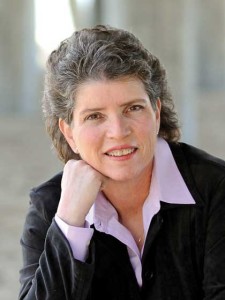 Janice Cantore is a retired Long Beach police officer who now writes suspense novels. Her twenty-two years of experience on the force lend authenticity to her stories. She has penned eleven romantic suspense novels: the Line of Duty series, the Cold Case Justice series, the Pacific Coast Justice series, Critical Pursuit, and Visible Threat. Crisis Shot and Lethal Target are the first two books in the Line of Duty series, which wraps up with Cold Aim (July 2019).
Janice Cantore is a retired Long Beach police officer who now writes suspense novels. Her twenty-two years of experience on the force lend authenticity to her stories. She has penned eleven romantic suspense novels: the Line of Duty series, the Cold Case Justice series, the Pacific Coast Justice series, Critical Pursuit, and Visible Threat. Crisis Shot and Lethal Target are the first two books in the Line of Duty series, which wraps up with Cold Aim (July 2019).
Relz Reviewz Extras
All Things Cantore @ Relz Reviewz
Visit Janice’s website and blog
Buy at Amazon: Cold Aim or Koorong

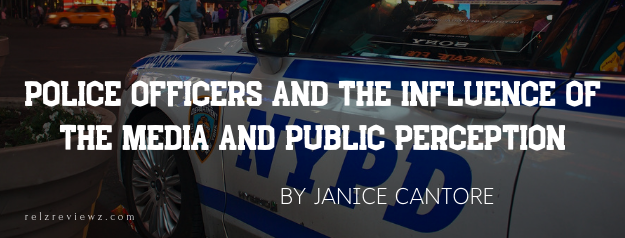
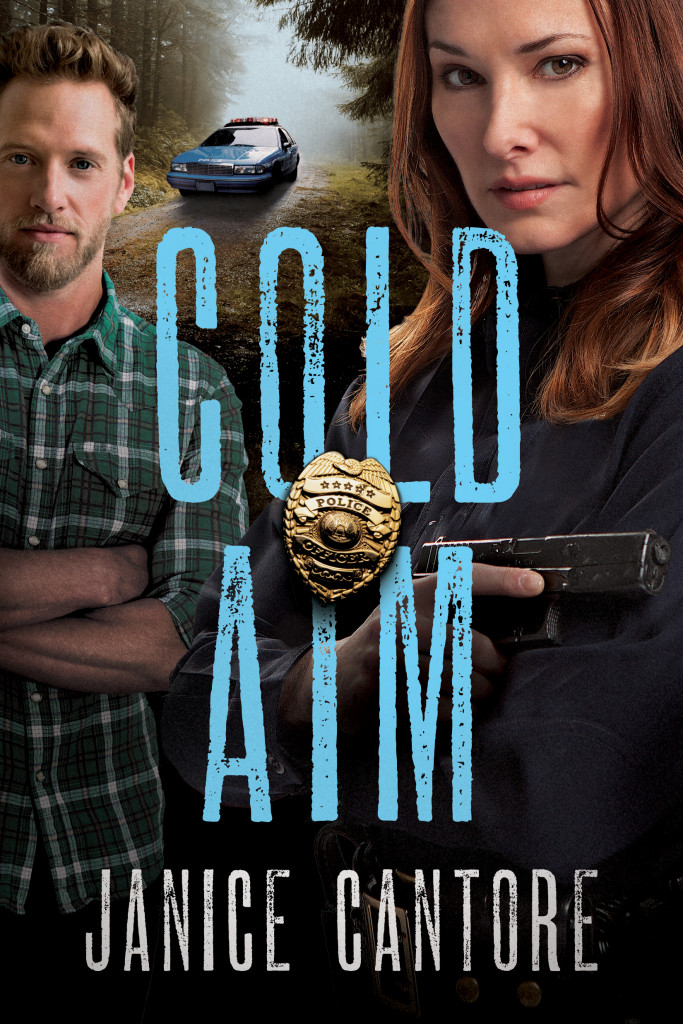

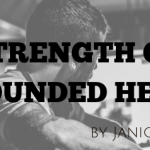


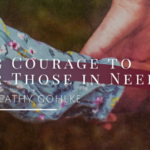

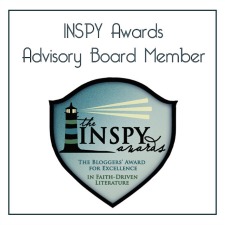




July 3, 2019 at 12:10 am
When I lived at home, our house was broken into twice and the policemen that responded were very kind and compassionate. More recently, I got pulled over for not stopping at a red light where I was turning right. Thankfully, the policeman let me go with a warning since I truly didn’t see it was red due to the sun in my eyes. I was raised to always respect policemen/women no matter what as they are God’s servants protecting the good and punishing the bad.
July 3, 2019 at 2:03 am
Thank you for your important comments, Janice. Like our wonderful men and women of the armed forces protect us abroad, the wonderful men and women of the police forces protect us at home. While no one truly knows what he or she may face in a given day, police officers go to work every day knowing they could be facing life and death situations for others and for themselves. That alone commands our utmost respect. I agree that there are a few bad apples, so to speak, but that is true in every occupation. I am so thankful for those who work to protect us and pray for their safety. I also have so much respect for their families who also deal with this on a daily basis. What a true calling! God bless them all!
July 3, 2019 at 6:01 am
So thankful for those officers who patrol our schools to make sure our children are safe during drop off and pick up.
July 3, 2019 at 6:39 am
Thanks for the very important and informative post, Janice! Police officers are so important in our society, but they often get a bad rap. And yes, I think a lot of it is due to the media. I haven’t had a lot of interaction with the police, but I have two nephews who are policemen, and they’ve been in a lot of dicey situations. One of them rescued a man from a burning house and received a national honor and much notoriety in the news, however, he’s suffered health issues and PTSD issues from that and other situations. I think, too, that it’s always easy to second-guess what a police officer “should” have done in a given situation, but people that do that aren’t usually present and don’t have split-seconds to make a life-or-death decision.
July 3, 2019 at 3:07 pm
Thank you to all the police officers out their My Nephew is in law enforcement Thank you for the amazing giveaway!
July 3, 2019 at 10:04 pm
My positive experience has been with my husband, he was a police officer for 20 years. So I was like one of the family and they all treated me great.
July 4, 2019 at 12:55 am
My positive one was when a man pulled out in front of me and I almost totaled my van. The responding officer was our school’s crossing guard, so he recognized me immediately, and was super sweet and stood up for me as the man was angry I hit him.
July 4, 2019 at 2:26 am
Being a police officer is a calling! May we honor and pray for our first responders!
July 4, 2019 at 3:23 am
My husband took a citizens police academy course and an advanced course in our town and got to know many of our officers. We especially had a good professional relationship with an officer who went on to be Chief of Police. He was always warm, friendly and had an easy smile for anyone around, plus a great sense of humor. We still see him around town every once in a while. I’ll be honest and say, police officers scare me a bit even though I know they shouldn’t!
Thank you for the giveaway chance, Rel! Janice, wonderful post here, thanks for your service. It’s an important role!
July 6, 2019 at 5:51 am
This is interesting but I think it’s the media’s job to hold officers of the state (and anyone with responsibility/power) accountable. I’ve always found the US to be an anomaly with mutual distrust between the police and the media.
I’ve feel I’ve learnt a little sympathy from reading some Christian suspense fiction but also feel this is a genre where the US bias/audience is most obvious – some of the story lines don’t translate as well – in the UK, police aren’t armed, gun crime is much more scarce (so many plot twists are improbable) and we only have the normal police and the Secret Service rather than a myriad of anti-cirme agencies. I think that for all the excitement and the acronyms, the police stories I’ve come across haven’t include a police brutality story or miscarriage of justice novel – which is likely a misrepresentation. While general Christian fiction now tackles divorce, rape, addictions and family break-up – suspense is behind and in my opinion, lacks that diversity of viewpoint.
This all sounds rather heavy and I hope I don’t come across as anti-police. I too am grateful for the work they do in fighting crime, but good Christian fiction should reflect the world we live in and seek to shine light into darkness. That being said, I’m also appreciative of the all the time and effort that goes into a creating an engaging story.
Thank you Janice for stimulating a very important discussion.
July 8, 2019 at 2:00 pm
The officers that respond to domestic violence calls are exceptional. It must not be easy to walk that line between being soft (caring) & hard (follow the law) at the same time. I had a very nice young officer remind me, at a very low point in my life, that the sun will be brighter tomorrow. Those simple words were very comforting. I could tell he was frustrated by how his hands were tied but I could tell he wanted to really help.
July 9, 2019 at 1:15 pm
We have a school resource officer at the middle school where I teach. He’s a great influence on the students, and really helps us feel safe and protected. I appreciate police officers (yes, even when I’ve gotten a ticket). They have such a hard job!